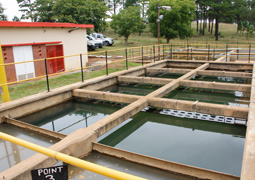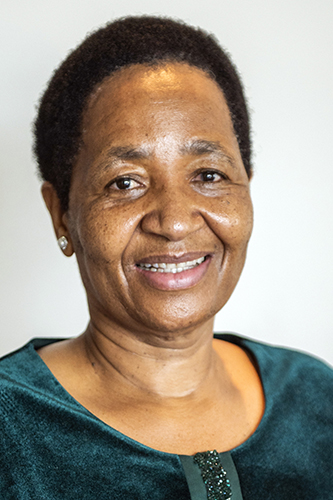
The Portfolio Committee on Human Settlements, Water and Sanitation has welcomed the apparent commitment of working together between the Department of Water and Sanitation and the City of Tshwane to resolve the water quality challenges in Hammanskraal. The committee highlighted that unity of purpose is the first pillar in resolving common challenges.
These sentiments were made during a meeting yesterday at Parliament, between the committee, the Department of Water and Sanitation and the City of Tshwane. The meeting followed an in-loco visit by the committee to Hammanskraal.
It was during the visit that the committee noted the escalation of the challenge especially in relation to the contamination of the river system by dumping untreated water from the Rooiwal Waste Water Treatment Plant into the Apies River.
“We are happy that there is appreciation of the need for all spheres of government to work together to resolve this crisis. But we must be frank that more work needs to be done, especially to resolve the issue of capacity at a broader level, to ensure that our people get quality water services,” said Ms Machwene Semenya, the Chairperson of the committee.
Of importance to the committee was the resolution of the capacity of infrastructure to cope with developmental growth of cities such as Tshwane. The committee highlighted its displeasure with the lack of movement to resolve challenges at a broader level. “We know that at the centre of this problem nationally, and in Tshwane in particular, is the inability of the system to handle inflow, but there has not been an associated plan to deal with this problem. We see a piece-meal approach that doesn’t resolve the challenge holistically,” Ms Semenya emphasised.
The committee was happy that there was Chlorine at the Rooiwal Waste Water Treatment Plant to treat water. During its visit, the committee found out that there was no chlorine on site meaning that untreated water was being dumped into the river system. The Deputy Minister of Water and Sanitation, Mr David Mahlobo assured the committee that, chlorine was delivered to the plant within 24 hours of the committee’s visit.
The committee highlighted that consequence management processes must be instituted against officials that cancelled the chlorine contract without an alternative plan in place first, to ensure availability of chlorine.
The maintenance of the entire water system was also raised as a concern both in Tshwane and across the country. “It is unsustainable that municipalities on average, spend less than 10% of their budgets on water and sanitation especially because of the economic value of water and the health risk associated with water illnesses, especially because residents pay for water and sanitation as part of the rates and taxes. That money must be invested into infrastructure programmes on water and sanitation,” said Ms Semenya.
It was concerning to the committee, that there has been a general under-spending on capital expenditure by the City of Tshwane vis-à-vis what was budgeted, since the 2008/2009 financial year. The concern was in the context of the high trend of inward migration which affects big cities such as Tshwane.
The unintended consequence of under expenditure of capex is collapsing system that is perpetually at risk level. The committee was concerned that of the 15 Waste Water Treatment Works, only 2 are operating within design capacity and four are at a critical state. “It is unacceptable that South Africa’s capital city spends just over R400 million on water and sanitation capex in a financial year,” Ms Semenya said.
The R400 million expenditure on capex concerned the committee especially in consideration that the city spends nearly R1 billon in 2013/14 financial year, which amounts to a 50% reduction in spending, yet the city continues to grow.
The clear lack of forward planning by the City of Tshwane as a water services authority and the national Department of Water and Sanitation, is a concern that needs an urgent attention.
“It boggles one’s mind why the municipality in 2004 had a masterplan that indicated that infrastructure expenditure had to take into consideration the population growth, economic growth and development, ageing infrastructure and pressure points in the system, yet no plans were implemented to take those items into consideration in their implemented programmes,” emphasised Ms Semenya.
The committee said one of its focus areas was on expenditure of grants especially those that are intended to alleviate backlogs in infrastructure. As a result, the department was informed that it will be invited again to appear before the committee with concrete plans to ensure expenditure of grants and how it plans to resolve the challenges holistically.
By Malatswa Molepo.

